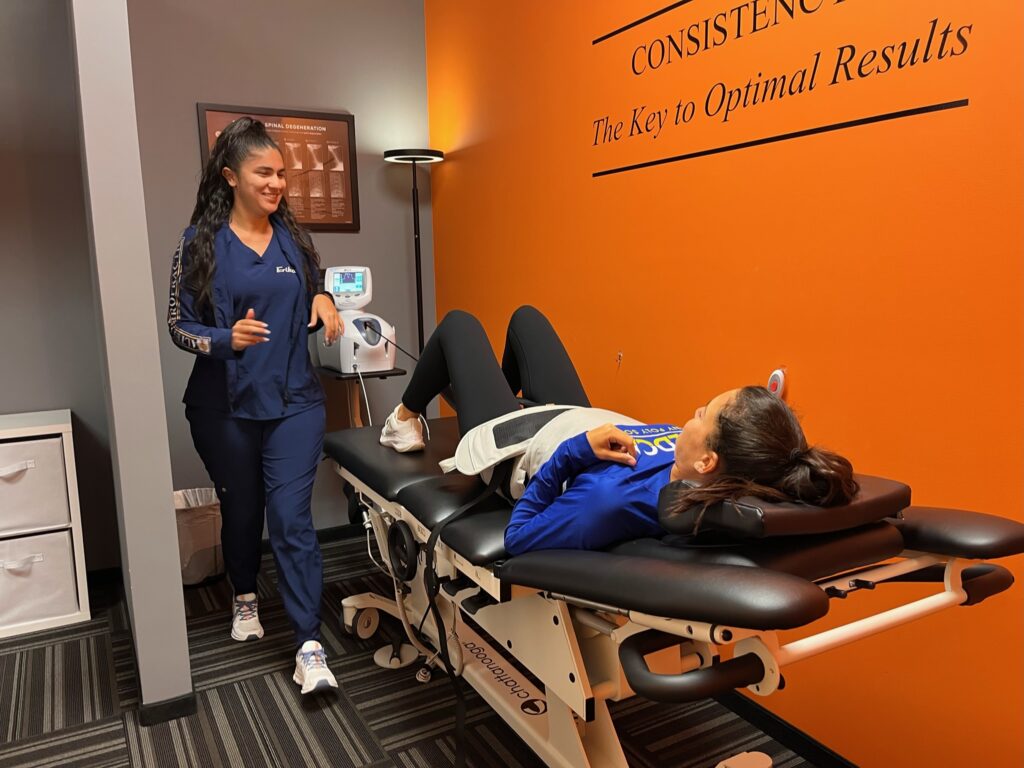When it comes to enhancing your athletic performance, there are five techniques you can't afford to overlook. By setting SMART goals, you create a clear path for your progress. Visualization can mentally prepare you for competition, while a balanced diet fuels your body effectively. Consistent training with specific objectives guarantees you're improving, and prioritizing recovery is essential for maintaining peak performance. Each of these strategies plays a significant role, but it's the integration of them that truly makes the difference. Let's explore these techniques in more detail to release your potential.
Mental Conditioning Strategies
Mental conditioning is essential for athletes looking to enhance their performance. It's not just about physical training; your mind plays a significant role in how well you compete. By developing mental conditioning strategies, you can improve focus, manage stress, and boost your confidence during competition.
Start by setting clear, achievable goals. Break down your larger aspirations into smaller, manageable steps. This gives you a sense of direction and helps you track your progress.
Visualization is another powerful technique. Imagine yourself performing at your best, feeling the adrenaline and excitement. This mental rehearsal can prepare you for real-life situations and make you more comfortable under pressure.
Breathing exercises can be a game-changer, too. When you feel anxious, practice deep breathing to calm your nerves. Inhale deeply through your nose, hold it for a moment, then exhale slowly through your mouth. This simple technique can help you regain focus and composure when it matters most.
Positive self-talk is crucial as well. Replace negative thoughts with affirmations that reinforce your strengths. Remind yourself of past successes and your capability to overcome challenges. Surround yourself with supportive teammates and coaches who uplift you.
Finally, develop a pre-competition routine. This can help you mentally prepare and establish a sense of normalcy before you compete. Consistency in your mental preparation can lead to improved performance and a more enjoyable experience in your sport.
Embrace these mental conditioning strategies, and watch as they elevate your athletic performance.
Advanced Nutrition Practices
To reach peak athletic performance, you can't overlook the impact of nutrition. The right fuel not only enhances your energy levels but also aids in recovery and muscle growth.
Start by focusing on a balanced diet rich in whole foods. Prioritize lean proteins, such as chicken, fish, and legumes, to support muscle repair. Carbohydrates, like whole grains and fruits, provide the energy you need for intense training sessions.
Hydration is vital, too. Dehydration can greatly affect your performance, so make certain you're drinking enough water throughout the day. Consider incorporating electrolyte-rich drinks during prolonged workouts to replenish lost minerals.
Don't forget about timing your meals. Eating a combination of carbohydrates and protein before and after workouts can optimize your performance and recovery. A pre-workout meal should be consumed 30 to 60 minutes prior, while a post-workout snack or meal is best within 30 minutes after your session.
Additionally, pay attention to micronutrients. Vitamins and minerals play essential roles in energy production and muscle contraction. Foods like leafy greens, nuts, and seeds can help guarantee you're getting what you need.
Lastly, listen to your body. Everyone's nutritional needs differ based on factors like age, weight, and the intensity of your training. Experiment with different foods and meal timings to discover what works best for you.
Effective Training Techniques
Maximize your athletic potential by implementing effective training techniques tailored to your specific goals. Begin by setting clear, measurable objectives. Whether you aim to build strength, improve endurance, or enhance agility, defining your goals helps you focus your training efforts.
Incorporate a mix of training modalities into your routine. For strength building, prioritize compound lifts like squats, deadlifts, and bench presses. These exercises engage multiple muscle groups, promoting overall strength and muscle growth.
If endurance is your goal, consider interval training. This method alternates between high-intensity bursts and low-intensity recovery periods, effectively improving cardiovascular fitness.
Don't overlook the importance of skill-specific drills. If you're a basketball player, practice shooting and dribbling. If you're a runner, focus on pacing and footwork. These drills not only enhance your technical skills but also build muscle memory, making you more efficient during competition.
In addition, maintain a consistent training schedule. Consistency is key to progress, so plan your workouts to guarantee you're hitting your targets regularly.
Consider using a training log to track your workouts and assess your progress over time. This will help you stay accountable and motivated.
Finally, listen to your body. If you're feeling fatigued or experiencing pain, adjust your training intensity or volume. Effective training isn't just about pushing through; it's about finding the right balance between challenge and recovery.
Recovery and Rest Protocols
After an intense training session, recovery and rest become essential for your athletic performance. It's during this time that your body rebuilds and strengthens itself, allowing you to perform at your best in future workouts or competitions. Ignoring recovery can lead to fatigue, decreased performance, and increased risk of injury.
To optimize your recovery, start with hydration. Replenishing fluids lost during training is vital. Aim to drink water or electrolyte beverages before, during, and after your sessions.
Next, focus on nutrition. Consuming a balanced meal rich in protein, healthy fats, and carbohydrates within an hour post-training helps repair muscle tissue and restore energy levels.
Incorporating active recovery days is also beneficial. Engaging in low-intensity activities like walking, cycling, or yoga keeps blood flowing to your muscles, reducing soreness without overexerting yourself.
Don't underestimate the power of sleep, either. Aim for 7-9 hours of quality sleep each night, as this is when your body performs most of its repair work.
Lastly, consider techniques such as foam rolling or massage therapy. These can alleviate muscle tightness and improve circulation, speeding up the recovery process.
Goal Setting and Motivation
Setting clear goals is essential for maintaining motivation and direction in your athletic pursuits. When you define specific, measurable, achievable, relevant, and time-bound (SMART) goals, you create a roadmap that keeps you focused. Instead of vague aspirations like "getting better," aim for concrete targets, such as "improving my mile time by 30 seconds in three months." This clarity transforms your ambition into actionable steps.
As you set these goals, remember that motivation can fluctuate. It's vital to establish both short-term and long-term objectives. Short-term goals provide quick wins that fuel your enthusiasm, while long-term goals give you a bigger picture to aim for. Celebrate these small victories; they'll keep your spirits high and your drive strong.
Additionally, visualize yourself achieving your goals. This mental imagery can enhance your motivation, making the process feel more tangible and achievable. Keep a journal to track your progress and reflect on your journey. Writing down both successes and setbacks helps you stay accountable and adapt your strategy when necessary.
Surround yourself with a supportive community, too. Sharing your goals with friends, family, or teammates can bolster your motivation and provide encouragement. They can help keep you on track and remind you of your commitment, especially during tough times.
Conclusion
To enhance your athletic performance, embrace these five techniques. Set SMART goals to guide your journey, visualize success to boost your confidence, and fuel your body with a balanced diet. Focus on effective training methods that challenge you, and prioritize recovery through hydration and sleep. By integrating these strategies into your routine, you'll not only improve your performance but also develop a resilient mindset that keeps you motivated and ready to tackle any challenge that comes your way.



